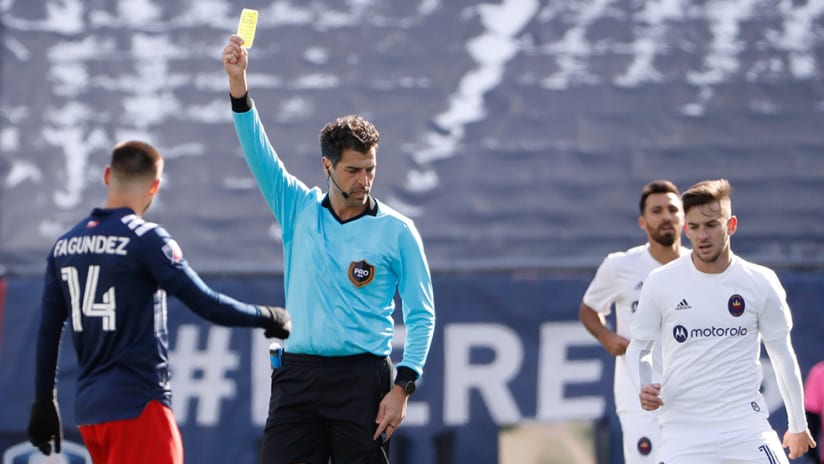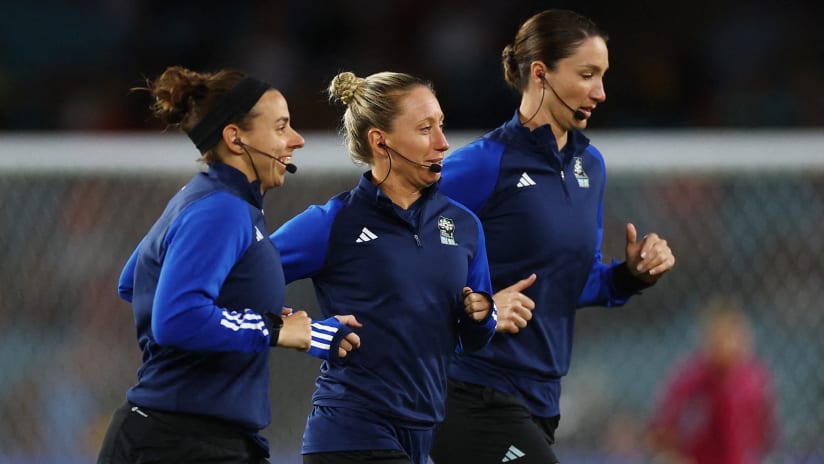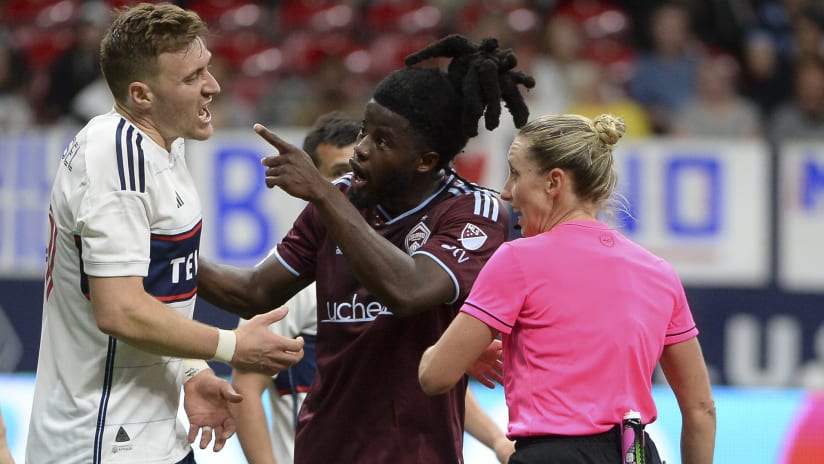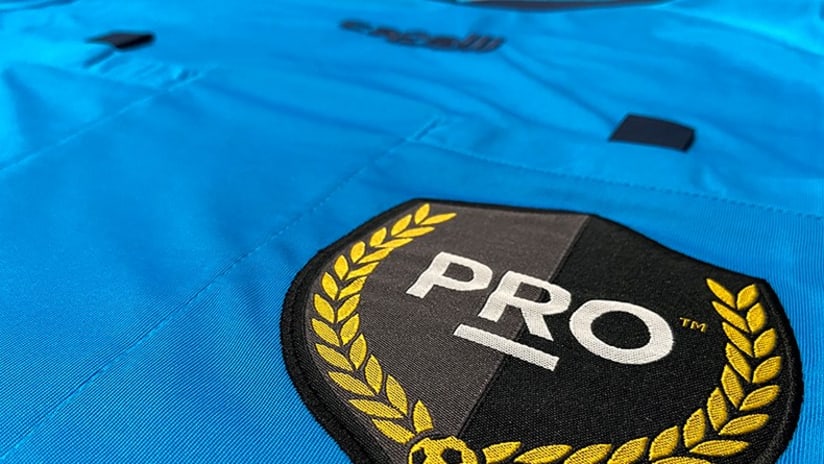Even with the 2020 MLS season suspended due to the COVID-19 pandemic, members of the Professional Referee Organization remain hard at work honing their craft.
One area of focus, as PRO outlined in a recent post, is broadening MLS officials’ understanding of upper-body challenges. Specifically, it’s focusing on when a player’s arms and hands turn from being part of a natural challenge to violent conduct.
For starters, PRO outlines what’s identified as a careless challenge, reckless challenge and a challenge that is more serious, using excessive force:
- Careless is when a player shows a lack of attention or consideration when making a challenge or acts without precaution. No disciplinary sanction is needed
- Reckless is when a player acts with disregard to the danger to, or consequences for, an opponent and must be cautioned
- Using excessive force is when a player exceeds the necessary use of force and/or endangers the safety of an opponent and must be sent off
Since soccer is inherently a physical game, players often use their arms and hands to jockey for position in a challenge, aerially or while creating space. But when violent conduct arises, referees turn to a yellow or red card.
Alan Black, PRO’s Head of Education and Coaching, outlined some of the nuances they search for during a game.
“We are aware that players can challenge with hands or arms at any point in the game,” Black said. “However, we have identified some game scenarios to help the referees recognize the potential for possible contact with hands or arms, and to therefore be better prepared to judge the severity of any offenses.
“These include players receiving the ball from a pass, players protecting the ball, and players running for the ball in close proximity to their opponents. In addition to this, players jumping for the ball with their opponents can lead to many types of contact with hands or arms. In all of these scenarios, there are important recognition skills an official must possess to get ahead of any potential challenge.”
The quick judgement calls require plenty of teamwork, Black also explained.
“We encourage the officials more so than ever on the fundamentals of good positioning and angle of view, in addition to heightened concentration and awareness of unfair contact,” Black began.
“Teamwork is another vital component, with every member of the officiating crew having a different angle and proximity, and the awareness to know they potentially may need to provide important information, all of which goes into the process of getting the decisions correct."
For more information and situations, check out PRO's in-depth piece here.













